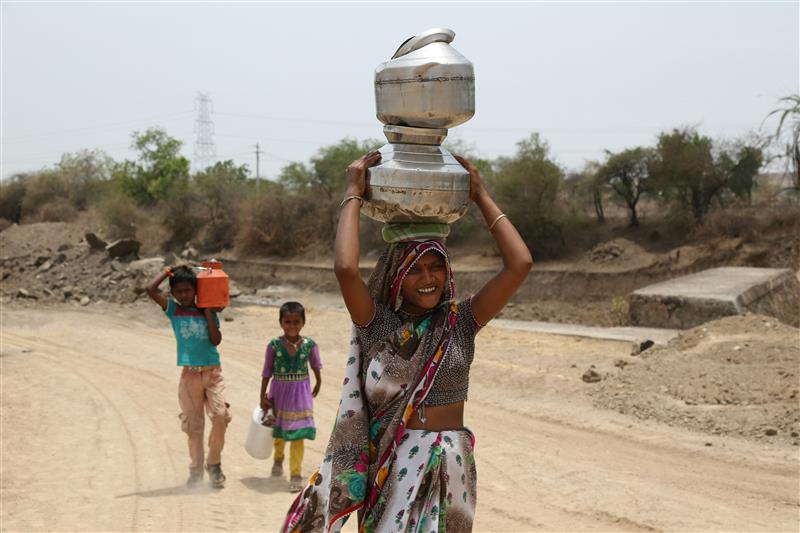With India’s elections ongoing, questions have been raised about the independence of the Election Commission of India, the body responsible for administering them. Concerns about the Commission’s independence are not new, though there are small signs of progress.
This year, the heat of summer in India is accompanied by the heat of its Lok Sabha elections. This is the lower house of the Indian parliament. Whilst political party manifestos and public statements have been a hot topic, attention has also turned to the Election Commission of India (ECI), which is responsible for conducting fair and free elections. Recent changes to its appointment procedures and the resignation of two Election Commissioners in 2024 have led some to question its impartiality.
India is not just the largest democracy in the world, but it is one of the most complex as well, given the linguistic, religious, regional and community aspirations involved. Amidst this complexity, the Election Commission of India—an institution created under the Indian Constitution—plays a central role in superintending, directing and controlling elections in India. In addition to elections for Lok Sabha, the ECI is also responsible for elections to the Rajya Sabha (India’s Upper House), state legislatures, local councils, and even the offices of the President and the Vice-President of India.
The commission consists of the Chief Election Commissioner (‘CEC’), who is the Chairperson of the Commission and is supported by several Election Commissioners (‘ECs’). There are also Regional Commissioners (at the state level), district magistrates designated as District Election Officers and even Booth Level Officers, showing the ECI operates all the way down to the most local level.
The Indian Constitution sets out the broad functions and composition of the ECI, as well as the procedure for removing the CEC. However, until 2023, there was no framework in place for appointing Commission members, leaving the President to exercise powers of appointment on the advice of the council of ministers led by the Prime Minister.
Questions around the ECI’s impartiality are not new. Historically, Councils of Ministers in the Indian Government from all parties have tended to advise the President on appointments based on their own political interests. Since the Constitution did not require multiple Commissioners, the ECI had only a single member (the CEC) until 1989. However, in October 1989 – just 10 days before General Elections were announced – the President, on the advice of PM Rajiv Gandhi’s government – appointed two new Commissioners. Gandhi’s party, the Indian National Congress, appeared to have caught wind of its ousting from government, wanted ‘their people’ in the ECI and so took the chance to limit the powers of the then CEC. When a new coalition government was formed under V.P. Singh in 1990, the President rescinded the earlier appointments, leaving only the CEC standing. When this was challenged in the Supreme Court of India, the Court found that the absence of rules relating to a multi-member Commission meant that the President retained discretion over appointments, exercised on the Government’s advice.
A multi-member Commission was reintroduced in 1993. Another court challenge followed, amidst claims from the petitioner that this was intended to limit the powers of the then CEC T.N. Sheshan, renowned for being fearsomely strict though even-handed across parties. The challenge was dismissed, and the multi-member setup has remained in place since then. Despite this, neither the Court nor Parliament have made any attempt to change the appointment process, leaving it to the whims of politics.
In 2023, the Supreme Court of India laid down the appointment procedure for the CEC and ECs. Appointments were now to be made by the President on the advice of a selection committee that included the Prime Minister (PM), Leader of Opposition in the Parliament (LOP), and the Chief Justice of India (CJI) – at least until Parliament formally legislated on the matter. This judicial creativity— resembling the system for judicial appointments or the appointment of the director of the Central Bureau of Investigation (CBI) – has received mixed reactions. Some hailed the courts as guardians of democracy, whilst others criticised them for judicial overreach.
Following this, the Indian Parliament enacted legislation setting out a revised appointment procedure. The first appointments of the ECs under the new scheme were made in March 2024, after two former ECs resigned from their posts citing ‘personal reasons’. This marked the first time in the history of India’s democracy that the Opposition had been involved in selecting ECs. However, the revised procedure – which replaces the CJI with a Cabinet Minister – has been criticised for being tilted in the Government’s favour. The Supreme Court must examine the validity of the revised procedure, although this remains valid until it does so.
Whilst India appears to have taken its first small steps towards a more independent election watchdog, there are concerns the UK is starting to move in the opposite direction. The same legislation that introduced Voter ID in 2022 gave the Government the power to determine the strategy and policy direction of the Electoral Commission. This government interference was criticised by the chair of the Electoral Commission, the Electoral Reform Society and not-for-profit group Unlock Democracy. Safeguarding the independence of elections in the UK requires a swift turn back from this mis-step.
Whilst commentators the world over will rightly scrutinise the independence of elections in this, the ‘year of elections’, the Indian Supreme Court provides a note of reassurance, and perhaps caution, stating “that the Republic [of India] has prided itself in conducting free and fair elections for the past 70 years, the credit wherefor can largely be attributed to the ECI and the trust reposed in it by the public. While rational scepticism of the status quo is desirable in a healthy democracy, this Court cannot allow the entire process of the underway General Elections to be called into question and upended on mere apprehension and speculation.”
Co-written by Pravar Petkar and Nitish Rai Parwani.



